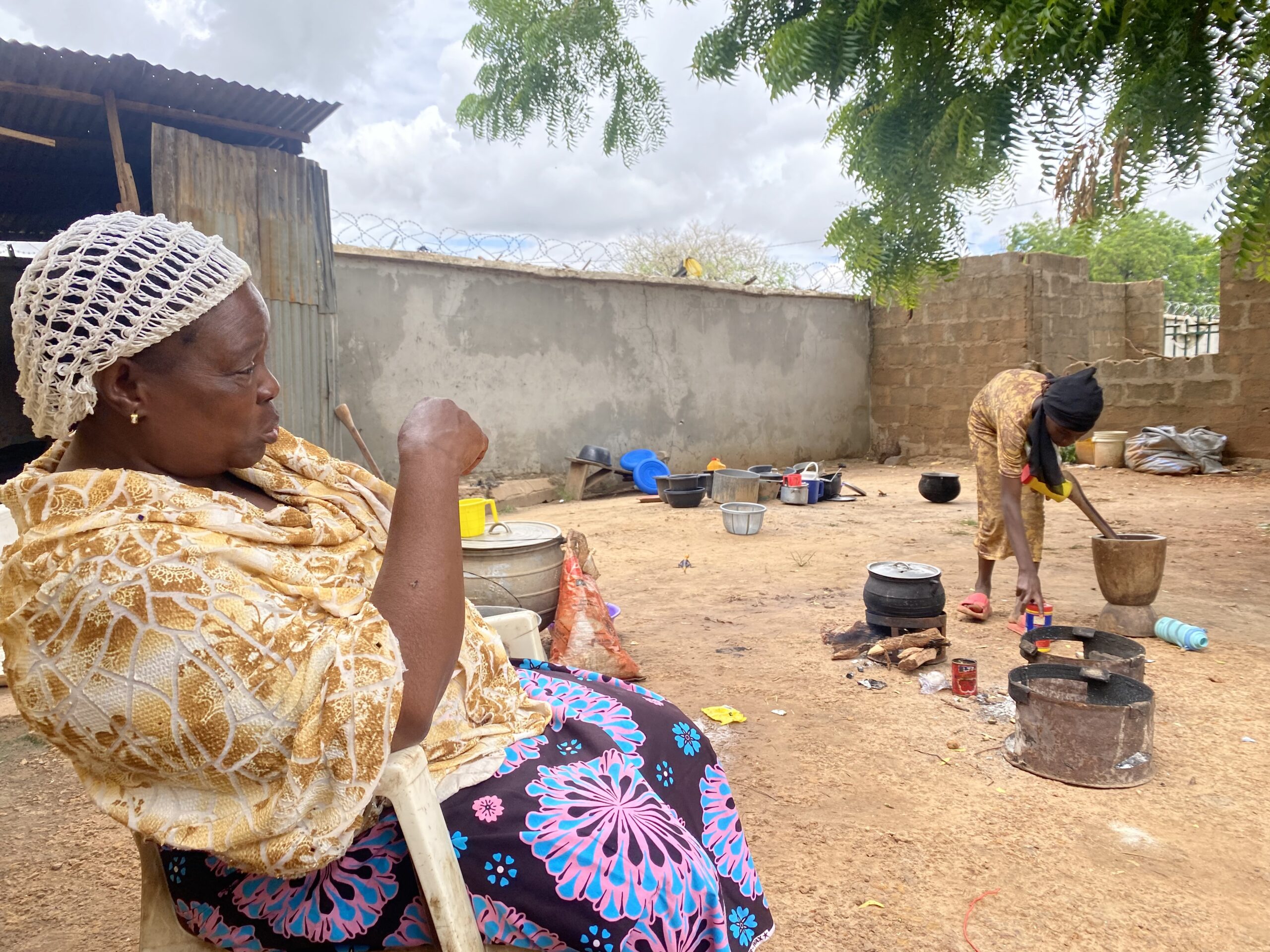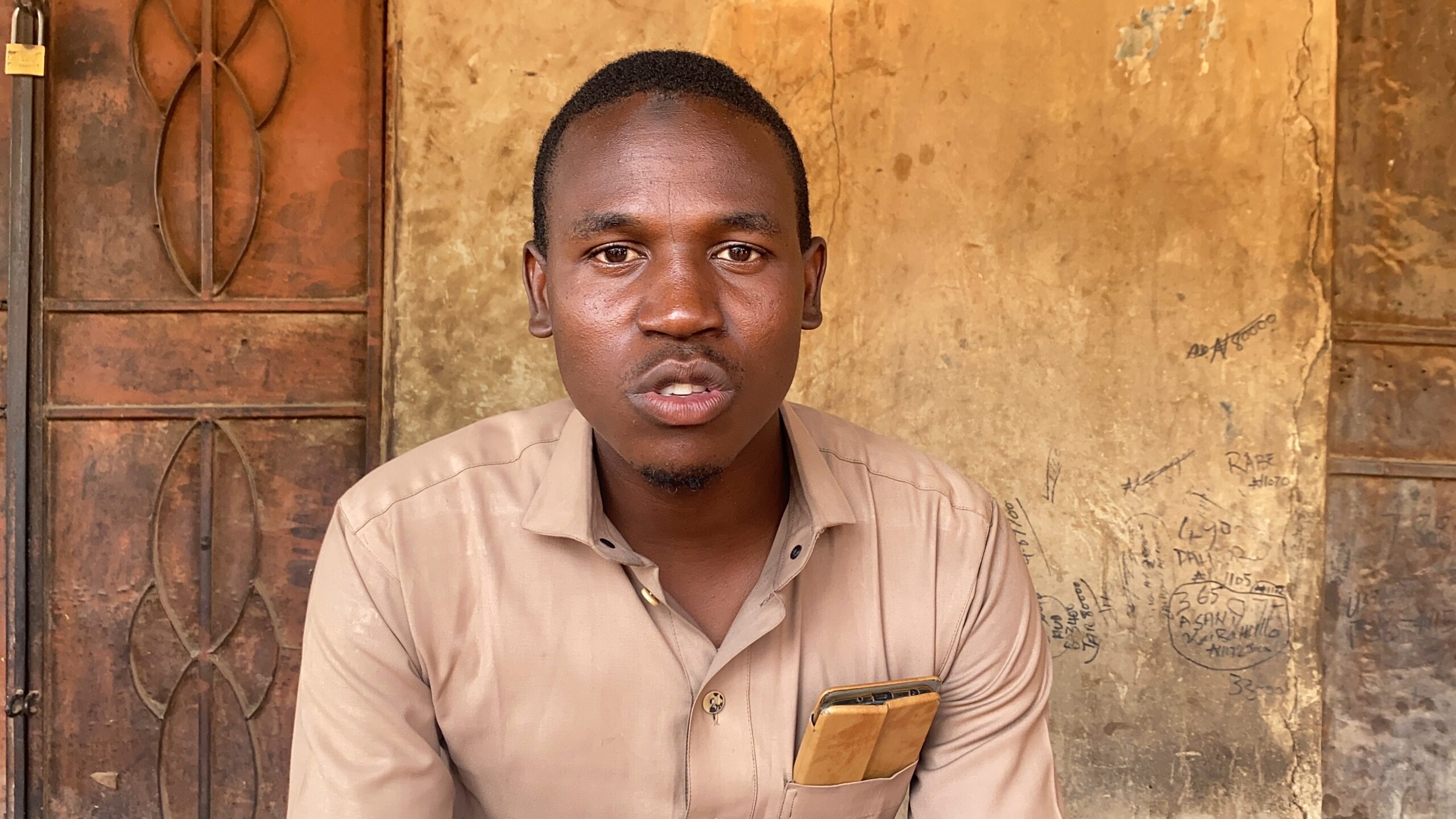Hadiza Murtala, a widow, runs a restaurant along the Nigeria-Niger border in Katsina State to cater for herself and 10 dependants.
“My husband is late. I live with my children, grandchildren and sister. There are 10 people in the house who depend on this business. This is our only source [of livelihood),” she told PREMIUM TIMES.
Having lived 18 years now in Kongolam, a border community in the northwest Nigerian state of Katsina, Mrs Murtala had seen the border closed under former President Muhammadu Buhari’s administration. But it had not affected her business as the current case.
Katsina State is one of the seven northern Nigeria states along the Nigeria-Niger border. Although Niger shares borders with seven African countries, the 1,600km-long (994-mile-long) border with Nigeria, Africa’s largest economy, is the longest and its most important.
More than a million people live in these communities where centuries of intermarriage, commercial and cultural ties have blurred the artificial border line.
Since 30 July when West African regional body, ECOWAS, imposed harsh economic sanctions on Niger over a military coup, life has not remained the same for Mrs Murtala and her family.
Her restaurant, located at the Kongolam border in Katsina and usually flooded by people crossing the border, had not a single customer when PREMIUM TIMES visited in August. It has been that way since the sanctions were imposed, she said.
“Although the border was closed during the Buhari administration, you cannot compare it with what is happening now. I used to make an average of N35,000 a day but now, nothing is moving, business is not moving. There is nothing, everything is just at a standstill,” she narrated.

“We do not cook anymore, I only cook what my family will eat,” she added.
Just like Mrs Murtala, Prisca Obinna’s petty trade has also taken a hit.
“We are doing nothing here now; our business will collapse. They (Nigeriens) are the ones who buy what we sell,” she said.
The mother of seven who has lived at Kongolam border for over 24 years contemplated relocating, she told this reporter. “But where will I go?”

“When the border was closed before, it was not like this. Immigration usually allowed people to across the border to patronise us but not anymore. As it is now, not even a fly can pass through the border,” Mrs Obinna said.
She said she has three of her children at the Federal University Katsina who had been calling to ask for money. “I can barely feed, talk more of sending money to them. Things are very hard for us now.”
The community is also affected by the power cut in Niger. With electricity supply erratic in Kongolam, residents depend on neighbouring Nigerien communitries for water and cold beverages.
Mrs Obinna wants President Bola Tinubu to allow trade to resume across the border. “He should have pity on us.”
Mrs Obinna who used to make an average daily turnover of about N20,000 said she had barely made N3,000 a day since the sanctions began.

Mercy Ogbonna, a hairstylist, is also affected by the closure of the border. “Since the closure, I cannot remember making hair for two people in the past one week.”
She said she had not restocked her store due to lack of patronage.

Sanctions and more sanctions
On 3o July, ECOWAS heads of state and government met in Abuja and agreed to impose economic sanctions on Niger. The sanctions include closure of land and air borders.
The regional body also gave the putschists seven days to reinstate the ousted President Mohamed Bazoum or face military intervention to restore constitutional rule. This ultimatum was ignored by the junta.
At the end of the second meeting of the ECOWAS heads of state and government, Ajuri Ngelale – the spokesperson of President Tinubu, who is also ECOWAS’ chairperson – said more sanctions had been imposed on the putschists and their allies.
But Tayo Teniola, lead, economic intelligence, Office for Strategic Preparedness and Resilience (OSPRE), said the sanctions will push already struggling women traders at the border communities back into harsh economic situations.
“The border areas between Nigeria and Niger are typically more fragile zones and some of them have been affected by conflict. Female cross-border traders have already been badly affected by the conflict as many of them had to shift from large scale trade to retail, and some of them already had to shift to other forms of enterprises,” she explained.
Beyond the effects on their businesses, the sanctions can expose women to more dangers related to conflicts, which characterise border communities especially between Nigeria and Niger. Ms Teniola said closure of the border may also increase the vulnerability of women cross-border traders and negatively impact livelihoods. “If the formal borders remain closed, female informal cross border traders can be exploited by smugglers and exposed to potential violence.”
Additionally, the loss of their livelihoods has wider ramifications for household incomes, especially for those who are the only income earners in their households.
This is Mrs Murtala’s current reality, being the breadwinner of her family.
However, despite the situation of traders like Mrs Murtala, President Tinubu said last week that the sanctions will remain until the Niger putschists give better concessions. He told Nigerian Islamic leaders who are mediating the crisis that the putschists should be willing to relinquish power in nine months instead of the three years they proposed.
Other businesses
Musa Iliyasu, a foreign exchange trader in Dankama, another border community in Katsina, said he had chosen to be patient in the face of the current downtime in his business.

“I started this business when I could not get a job and it is this business that bought me the land which I am now building on. The border closure has taken a hit on my business. Before now, at least 30 Nigeriens could come in and have their money exchanged but that is no longer the case,” he narrated.
“I used to make N10,000 as daily profit but I now struggle to make N2,000.”
Safulayi Saya, whose truck is one of those parked along the road, lamented bitterly. He said the border closure affects them and the customers they serve as they are unable to access Jibiya because border control officials believe that if the goods come into Jibiya, getting into Niger is inevitable.
“All the trucks lined up here have goods in them, some goods have been soaked by water and the driver will be the one to pay for any damages,” he said.
READ ALSO: US repositions troops in Niger
A visibly frustrated Mr Saya said they just want to return to their families. “Is Jibiya in Nigeria or Niger?” he asked rhetorically, adding that the government should intervene because if people stop earning legitimately, they could resort to illegitimate means.
PREMIUM TIMES also reported how the transport sector has been affected by the sanctions with freight services halted between member states and Niger.

Way out
Asked how she plans to cope with the situation if it persists, Mrs Murtala said “God will take control of everything because we are not the ones feeding ourselves.”
Ms Teniola lamented that the welfare of women was not considered in the handling of the Niger crisis. “ECOWAS, under Nigeria’s leadership, needs to figure out ways to apply pressure on the military junta without sacrificing the well-being of cross-border communities, including female traders,” she said.
“Preserving market access for these women does not really have any impact on the junta so they should consider this,” she added.
This report was done with support from the Centre for Journalism Innovation and Development with funding support from the Open Society Foundation.
Support PREMIUM TIMES’ journalism of integrity and credibility
Good journalism costs a lot of money. Yet only good journalism can ensure the possibility of a good society, an accountable democracy, and a transparent government.
For continued free access to the best investigative journalism in the country we ask you to consider making a modest support to this noble endeavour.
By contributing to PREMIUM TIMES, you are helping to sustain a journalism of relevance and ensuring it remains free and available to all.
TEXT AD: Call Willie – +2348098788999









